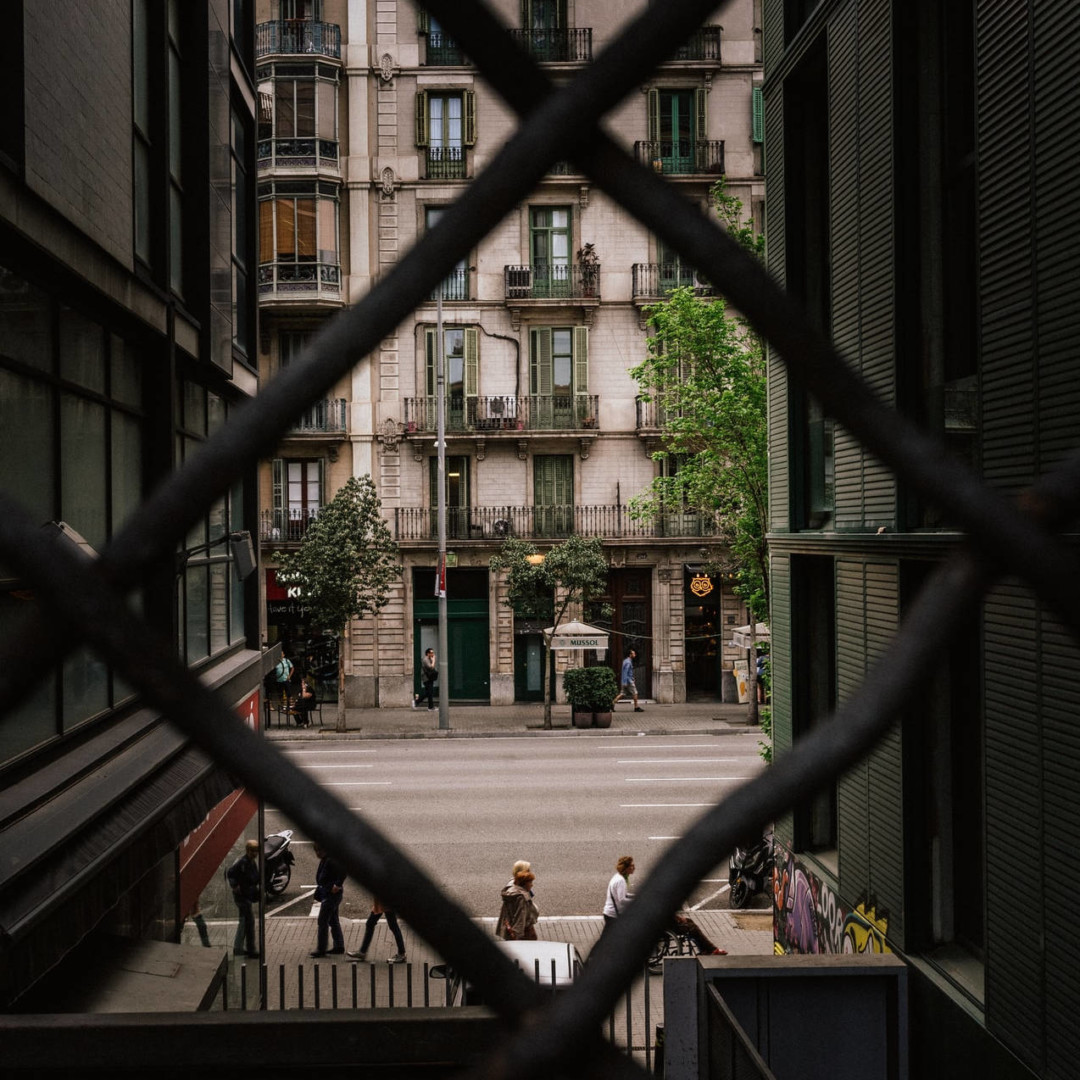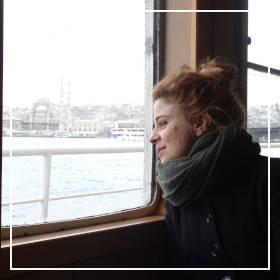Last month, while in Spain, we woke up to the news that local residents in the Canary Islands were planning to set up patrols to attack immigrants. In Barcelona, citizen patrols, without confirmed ties to far-right groups, have long demanded a greater police presence, threatening to “take matters into their own hands”, according to their social network announcements. They surveil people they consider a menace on public transportation. While both cases have been harshly criticised by journalists and politicians, it has become common for members and sympathizers of far-right parties, such as Vox in Spain, to appear in mainstream media spreading racist messages. While these patrols provoke outrage and protest among many citizens in Spain, state violence against illegalised and racialized migrants has not resulted in mass disapproval. Instead, a branched “system” of surveillance of illegalised[1] migrants has formed in Spain that includes state institutions, right-wing sympathizers and citizen patrols. This surveillance is not managed by a particular organization, but it has spread throughout different government departments and it is put into practice through different forms of violence. Such surveillance practices dissolve reality itself and affects both people´s perceptions of it and of themselves.
This violence in Spain is part of a broader regime that operates throughout Europe. As a result of deadly migration policies, many people are forced to risk their lives by taking dangerous routes to Europe. In Tunisia, mothers of young boys who disappeared on their way to Europe are still waiting for their sons and demanding accountability. Thousands of people are deported from Europe each year or spend decades living under a Departheid[2] system that denies them access to basic rights. In March, activists in Madrid commemorated the loss of Mame Mbaye, who died during a brutal police raid in 2018. The Court dismissed the case brought against the police. On February 6th, 2014, fifteen people lost their lives near the border of Ceuta when Guardia Civil police officers fired rubber bullets at them. In 2020, the Spanish Court acquitted the police officers, concluding that they acted “in an appropriate way”[3]. People have died in migrant detention centres in Barcelona and Madrid with nobody having faced charges to date. We live with this reality every day and cannot claim ignorance. In spite of repeated mobilisations against these policies, national democracies are perfectly capable of turning a blind eye to the violence against migrants; in fact, they are producing it.
This violence in Spain is part of a broader regime that operates throughout Europe. As a result of deadly migration policies, many people are forced to risk their lives by taking dangerous routes to Europe.
While the media’s eyes are fixed on the European Union’s external borders, the case of Spain shows that forms of violence are emerging inside the state. The nation-state imaginary is applied in banal, monotonous ways: meetings in offices, databases of illegalised people, day-to-day tasks executed by bureaucrats in the name of “prevention” and safety. In Barcelona, as in other major global cities, different sort of patrols, both institutional and citizen, monitor illegalised people’s movements to create what the authorities consider a safe city. From “border-hunters” in Hungary, to neighbourhood patrols[5] targeting Roma people in Rome, to the Northern League’s rhetoric on “reconquering public spaces”[6] , patrolling has become a normalised activity. These patrols operate with a frequency, range, and subtlety that transforms abstract concepts such as “safety”, “citizen” and “migrant” into fearful visceral realities.
Barcelona presents itself as a “welcoming city”, per the marketing messages of city council campaigns. Yet thousands of illegalised people are confronted by the police with guns, bureaucrats with stamps, encounters with citizens patrols, and with Spain’s Law on Foreigners. Depending on the nationality of one’s passport, once in Spain, a person may either be granted access to rights or be considered a non-citizen. The latter is achieved by denying access to rights. This fate typically leave poor and racialized “Others” living under constant survelliance and the threat of deportation. For the EU passport holders, some are treated as though they are Spanish citizens, whereas others are not, such as the racialized Roma.

On the Barcelona streets, police officers from three different forces protect this safe city: the Policía Nacional (national), the Mossos (regional), and the Guàrdia Urbana (local). In addition, plain-clothed institutional patrols, considered “street workers”, walk up and down in the neighbourhoods, in a sort of social policing. Fear has taken over the city; it produces evermore fear, just as safety calls for more safety. In January 2021, shop owners in El Born, a white middle-class artistic neighbourhood, demanded that the City Council provide fewer police but also more “civic agents”, institutional agents wandering the streets to surveil people´s public conduct. These civic agents, together with the other municipal street workers, monitor illegalised people. While the presence of uniform police disturbs the visual amiability of the city, the “police without a baton”, as an elderly trader living on the street called them, municipal street workers, are in high demand.
In these precarious times, patrolling in Barcelona reassures official citizens that the municipal institutions still defend them from an imaginary Other. It reinforces the division between those considered citizens and those not granted this status. Simultaneously, the mere presence of these patrols induces the control not only of the illegalized people, their direct target, but also of official citizens. They become part of the surveillance system as they don´t denounce it. They are watchers and are watched at the same time.
In these precarious times, patrolling in Barcelona reassures official citizens that the municipal institutions still defend them from an imaginary Other. It reinforces the division between those considered citizens and those not granted this status.
The constant surveillance instils a permanent state of anxiety and a deep sense of alienation. We do not recognise ourselves when we are on the receiving end of this surveillant gaze. Invasive police body checks nullify our privacy at any moment. This totalitarian surveillance aims for a “control of the self that is permanent and at all levels, emotional, affective”[7] . At the same time, it instils a sort of blindness. A minor may be stopped five times in a single day by a patrol who ask him for his papers, put him through humiliating public rituals , and fail to see that he is just a young man, alone on the street. For the patrols, the problem is not that a child is living alone in the street, but the “threat” this child poses according to their criteria and perception. The vast majority of unaccompanied foreign minors end up on the street by 18 years of age since. Lacking a residency permit, close friends or income, police patrols strictly monitor them. One young man from Morocco explained clearly:
“When the police stop me, they keep saying: ‘We already know that you hang out with the boys, we know what you do’. But they are my friends, we all came from Melilla, that’s why I go to the square, I don’t have any other friends. They check us, they throw us to the ground, yell at us: they do all this in public and people watch”
Patrolling ostensibly aims for public safety by means of prevention: prevention of conflict, prevention of exclusion, prevention of uncivic behaviour. Two laws frame ”prevention”. The first is the Law on Public Security, also known as the “Ley mordaza” or gag law, which punishes resistance to state authority as a criminal act, such as refusing to be stopped for a check. The second is a local directive known as the Directive on Civility, issued in 2005, which criminalises illegalised people working on the street.
Prevention aims to preclude a presumed future, criminal event but its effects occur in the present. It grants institutions free reign to engage in brutal interventions against racialized migrants in the name of safety.
Prevention, however, gives a carte blanche for violent raids against illegalised people. If one is normally assumed innocent[8] until proven guilty, then in these Kafka-esque[9] preventive schemes “guilt is beyond question” As a trader from Senegal described “Seven plain-clothes police officers jumped on me, and detained me, without a word. I was on the street, selling. I can´t complain. My only choice is to forget everything that happened.”
Prevention aims to preclude a presumed future, criminal event but its effects occur in the present. It grants institutions free reign to engage in brutal interventions against racialized migrants in the name of safety. These events are accompanied by violent police checks on public transport and a lack of any protection for those targeted, as filing a report would put them at risk of being deported.
Prevention and “civic policing” destroy social closeness, producing a form of loneliness based on ‘watching’ the other. The existence of this surveillance system, instilling an alienating reality, begs the question: why do those who consider themselves citizens close their eyes to this violence? Why do they need to be protected? By whom and against whom?
Footnotes
[1] I use the term “illegalised” to stress that people’s situation is the result of an administrative process and a political decision.
[2] Kalir, B. (2019). Departheid. The Draconian Governance of Illegalised Migrants in Western States. Conflict and Society, 5, 19–40.
[3] https://www.elperiodico.com/es/sociedad/20200728/absueltos-guardias-civiles-acusados-muerte-inmigrantes-tarajal-8056933
[4] https://www.publico.es/actualidad/barbarie-invisible-centros-internamiento-extranjeros.html
[5] Ivasiuc, A. (2018). The Order of Things and People: Vertical NonState Surveillance, The Open Journal for the Study of Culture, 6: Surveillance Cultures.
[6] Dematteo, L. (2008) La ” défense du territoire ” en Italie du Nord, ou le détournement des formes de la participation locale. Anthropologica, 50(2).
[7] Fanon, F. (2018). Alienation and Freedom. Edited by Jean Khalfa and Robert J.C. Young. Translated by Steven Corcoran. London: Bloomsbury Academic.
[8] For relations between innocence, racial policing and social recognition, see Wang J. (2018), Carceral Capitalism, London: SEMIOTEXT(E) INTERVENTION SERIES.
[9] Kafka, F. (2009). The Metamorphosis and Other Stories. Translated by Joyce Crick. Oxford University Press
Featured image by Adam Jang on Unsplash.





